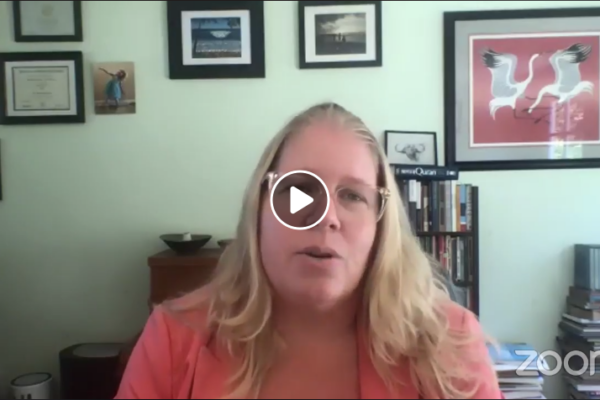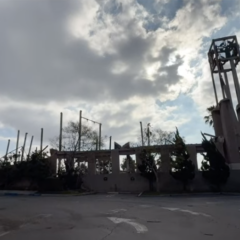Community Response System of South Los Angeles (CRSSLA), a preparedness and response cooperative between community-based organizations, churches, educational institutions in South Los Angeles, hosted a virtual meeting on effective community engagement amid the COVID-19 outbreak. The discussion featured Dr. Barbara Ferrer, director of the Los Angeles County Department of Public Health, as keynote speaker, and various community leaders, including Brie Loskota, executive director of the Center for Religion and Civic Culture.
Click here to watch the entire event on Facebook.
Loskota discussed how government agencies can build effective and equitable partnerships with local communities and faith communities:
As we look at the future of government response to any type of emergency or disaster, what might keep them from becoming catastrophes is really their ability to create effective partnership. The question is not going to be if they have to create partnership, the question is actually going to be what type of partnership will it be. Will it be extractive? Will it be transactional? Or will it be deeply mutual?
And what we need to see from government agencies is a structure that builds the engagement over time, not just when there is a public health need, let alone an emergency like a pandemic. Building a structure for ongoing engagement would enable the Department of Public Health to move to a deeply mutual or, as Peter had said, a hyper engaged model of working with communities. What that requires is going to communities before the work is done. Even sometimes before the ingredients are compiled.
To talk about what are the issues the communities really care about, often what we see in government engagement is that governments come to community groups in a way to transact something, to ask them to represent a particular message out to the community. They do this because communities are really effective messengers. The problem is that they often don’t understand or believe or prioritize the message that a government agency is asking them to amplify.
And so the quality of the messaging and engagement is directly related to the quality of the partnership or relationship between the partners. We also think that this could span different agencies. The Department of Public Health has the ability to look at public health, and also public safety, in a way that transcends agencies.
What happens on the faith community or community group side is that every single government agency is doing the same type of outreach to the same set of actors, trying to get their same agenda passed. But there isn’t actually a structure for coordination and mutual building, both within an agency and across agencies, that would respect the time of community groups and their investment in building an agenda together. So if you think about the structure, you have to remember that there is a deep distrust of government, in part because there has been a lack of respect for the experience and time and resources of community groups to do this type of engagement work.
If we foster respect, we can grow trust, because trust is a function of respect. A lot of government agencies will ask, “why is it that a group doesn’t trust us?” and I’ll say very plainly, “it’s because there’s a demonstrated history of a lack of respect.” You cannot trust somebody that doesn’t demonstrate respect, and respect comes in time, expertise, and resources.
To work on that, I always have a few principles. Government agencies can only ever ask, not task. So they can only ever ask for partnership, they can never command the resources of the private sector, let alone communities or faith communities. When they ask, they should have an offer. They should be willing to provide something so that it’s not just a transaction, even though sometimes transactions are necessary. But they definitely can’t be extractive. Knowledge is short in many places, and capacity is everywhere. So it is our job to unlock this for the just and equitable benefit for all.
Click here to watch the entire event on Facebook.




